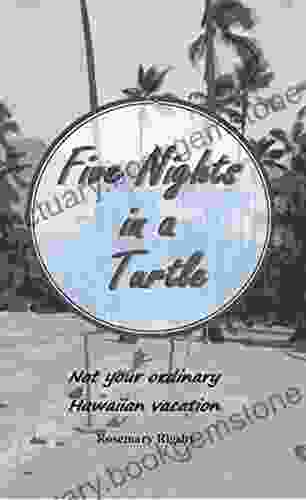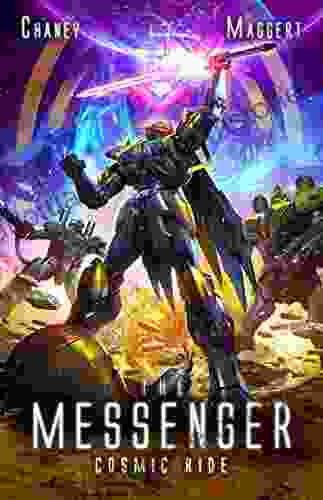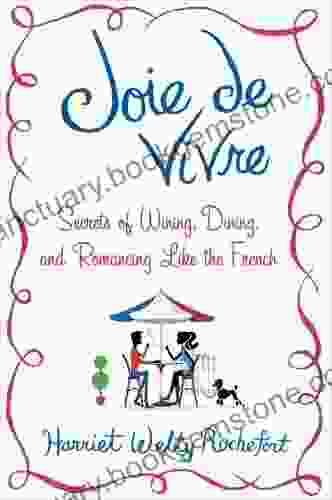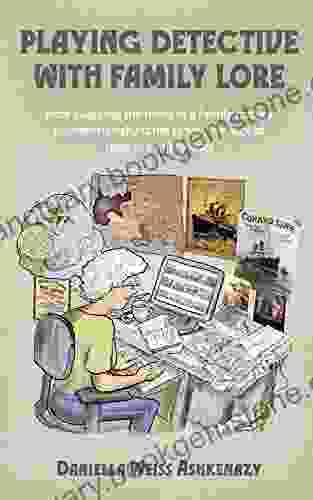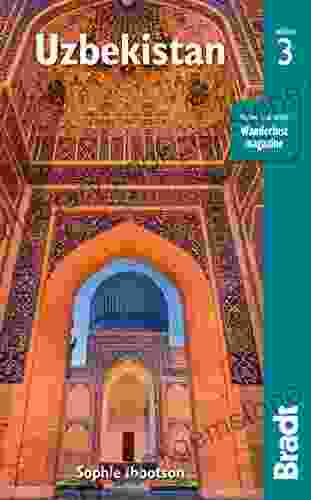Gothic: The New Critical Idiom

Gothic literature is a genre that has captivated readers for centuries, with its tales of the macabre, the supernatural, and the uncanny. From the classic works of Edgar Allan Poe and Mary Shelley to the contemporary novels of Anne Rice and Stephen King, Gothic fiction has continued to evolve and adapt to the changing tastes of readers.
4.3 out of 5
| Language | : | English |
| File size | : | 941 KB |
| Text-to-Speech | : | Enabled |
| Screen Reader | : | Supported |
| Enhanced typesetting | : | Enabled |
| Word Wise | : | Enabled |
| Print length | : | 242 pages |
In recent years, there has been a renewed interest in Gothic literature, with scholars and critics exploring the genre's complex history and its relevance to contemporary society. This new critical idiom has been characterized by a focus on the genre's political and social dimensions, as well as its potential for subversion and critique.
The History of Gothic Literature
Gothic literature has its roots in the 18th century, when it emerged as a reaction to the Enlightenment's emphasis on reason and rationality. Gothic writers, such as Horace Walpole and Ann Radcliffe, sought to explore the darker side of human nature, delving into the realms of fear, madness, and the supernatural.
Gothic literature flourished in the 19th century, with the works of Edgar Allan Poe, Mary Shelley, and Nathaniel Hawthorne. These writers explored the Gothic's potential for psychological terror, creating stories that probed the depths of the human psyche.
In the 20th century, Gothic literature continued to evolve, with writers such as H.P. Lovecraft and Shirley Jackson exploring the genre's cosmic and existential dimensions. Contemporary Gothic writers, such as Anne Rice and Stephen King, have updated the genre for a new generation of readers, exploring themes of violence, trauma, and the supernatural.
The Themes of Gothic Literature
Gothic literature is characterized by a number of recurring themes, including:
- The supernatural: Gothic stories often feature elements of the supernatural, such as ghosts, vampires, and werewolves. These supernatural elements can be used to create a sense of terror and suspense, or to explore the deeper psychological and existential themes of the story.
- The macabre: Gothic literature is often filled with images of death and decay. This macabre imagery can be used to create a sense of unease and discomfort, or to explore the darker side of human nature.
- The uncanny: Gothic literature often explores the uncanny, that which is both familiar and strange. This sense of the uncanny can be created through the use of unsettling imagery, or through the juxtaposition of the ordinary and the extraordinary.
- Isolation: Gothic stories often feature isolated characters who are cut off from the rest of society. This isolation can be physical, psychological, or both. It can be used to create a sense of vulnerability and suspense, or to explore the themes of alienation and self-discovery.
- The double: Gothic literature often features doubles, characters who are identical or who mirror each other in some way. This doubling can be used to create a sense of mystery and suspense, or to explore the themes of identity and duality.
The Critical Reception of Gothic Literature
Gothic literature has been the subject of much critical debate and analysis. Some critics have dismissed the genre as mere escapist entertainment, while others have praised it for its psychological depth and its potential for social and political critique.
In recent years, there has been a renewed interest in Gothic literature, with scholars and critics exploring the genre's complex history and its relevance to contemporary society. This new critical idiom has been characterized by a focus on the genre's political and social dimensions, as well as its potential for subversion and critique.
The Gothic in Contemporary Culture
Gothic literature has had a profound impact on contemporary culture. The genre's themes and imagery have been used in a wide variety of films, television shows, and video games. Gothic fiction has also been used to explore the darker side of human nature, and to critique social and political issues.
The Gothic continues to be a vital and relevant genre of literature, offering readers a way to explore the darker side of human nature and to confront the fears and anxieties of their time.
Gothic literature is a complex and multifaceted genre that has captivated readers for centuries. It is a genre that explores the darker side of human nature, delving into the realms of fear, madness, and the supernatural. Gothic literature has the power to terrify, to disturb, and to provoke thought. It is a genre that continues to evolve and adapt to the changing tastes of readers, offering a unique and unforgettable experience for those who dare to enter its dark world.
4.3 out of 5
| Language | : | English |
| File size | : | 941 KB |
| Text-to-Speech | : | Enabled |
| Screen Reader | : | Supported |
| Enhanced typesetting | : | Enabled |
| Word Wise | : | Enabled |
| Print length | : | 242 pages |
Do you want to contribute by writing guest posts on this blog?
Please contact us and send us a resume of previous articles that you have written.
 Best Book
Best Book Page Flip
Page Flip Bookshelf
Bookshelf Literary loom
Literary loom Chapter
Chapter Bookish
Bookish PageTurner
PageTurner Bibliophile
Bibliophile Story
Story Inkwell
Inkwell Bookworm
Bookworm Labyrinth
Labyrinth Plot Twist
Plot Twist Prose
Prose Paperback
Paperback Storyteller
Storyteller Sanctuary
Sanctuary Fiction
Fiction Reading
Reading Chronicle
Chronicle Read
Read Angus Johnstone
Angus Johnstone Judy Omar
Judy Omar J Bright
J Bright Farha Ghannam
Farha Ghannam Roman Frister
Roman Frister Terry Brooks
Terry Brooks Jane Dunnewold
Jane Dunnewold Kristina Liu
Kristina Liu Stephanie Laurens
Stephanie Laurens Danielle Geller
Danielle Geller Louise Egerton
Louise Egerton Kindle Edition With Audio Video
Kindle Edition With Audio Video Josh Hanagarne
Josh Hanagarne Tim Slessor
Tim Slessor Padma Lakshmi
Padma Lakshmi Fred Saberhagen
Fred Saberhagen Lakisha Johnson
Lakisha Johnson Marilyn Chase
Marilyn Chase Bernie Marcus
Bernie Marcus John F Mullins
John F Mullins Andrew Meier
Andrew Meier Anna Qu
Anna Qu Anna Corba
Anna Corba Lynda Vaughn
Lynda Vaughn Xander Black
Xander Black Ann Marks
Ann Marks Charles Reid
Charles Reid James T Deshields
James T Deshields Annabel Chase
Annabel Chase Jane Akshar
Jane Akshar Paul Robert Walker
Paul Robert Walker Camil Flores
Camil Flores Phoenix Collins
Phoenix Collins Gavin Ambrose
Gavin Ambrose John Charles Bennett
John Charles Bennett Kevin Grange
Kevin Grange Andy Davidson
Andy Davidson Shannon Leone Fowler
Shannon Leone Fowler Michael Asher
Michael Asher Chris Weyers
Chris Weyers Regine Abel
Regine Abel Andrew Graham Dixon
Andrew Graham Dixon Bill Fawcett
Bill Fawcett Anita Brookner
Anita Brookner Angie Cruz
Angie Cruz Ys Publishing
Ys Publishing J N Chaney
J N Chaney Katrina Mcpherson
Katrina Mcpherson Anna Cavallo
Anna Cavallo Ernesto Che Guevara
Ernesto Che Guevara Jocelyn Harewood
Jocelyn Harewood Doris Kennedy
Doris Kennedy Taylor Michaels
Taylor Michaels Manuel Huitzilli
Manuel Huitzilli D C Palter
D C Palter Jill Braden
Jill Braden Charla Krupp
Charla Krupp Duncan Heath
Duncan Heath Andrew Grant
Andrew Grant Angela Wolf
Angela Wolf Brian Shea
Brian Shea Andrew Johnson
Andrew Johnson Luis Carlos Montalvan
Luis Carlos Montalvan Jarrett Brandon Early
Jarrett Brandon Early Nicholas Roerich
Nicholas Roerich Andrew Delaplaine
Andrew Delaplaine Andrew Carroll
Andrew Carroll David Nees
David Nees Howard Thurston
Howard Thurston Henry Van Dyke
Henry Van Dyke Zachary Lamothe
Zachary Lamothe Andrea Lee
Andrea Lee Angus Roxburgh
Angus Roxburgh Joshua Rivkin
Joshua Rivkin William J Lederer
William J Lederer Joseph E Persico
Joseph E Persico Tiffany L Warren
Tiffany L Warren Andrei Codrescu
Andrei Codrescu Walter Foster
Walter Foster Andrew Haslam
Andrew Haslam Ed Duncan
Ed Duncan Lisa Dickey
Lisa Dickey Don Bluth
Don Bluth Scott Baron
Scott Baron Godfrey Baldacchino
Godfrey Baldacchino Drew Kwong
Drew Kwong Andreas Deja
Andreas Deja Annabelle Honess Roe
Annabelle Honess Roe Andrew Tunstall
Andrew Tunstall Jack Porter
Jack Porter Angelo Colorni
Angelo Colorni Frank Kennedy
Frank Kennedy Andrew Sutton
Andrew Sutton Barbara Lasalle
Barbara Lasalle Mark Horrell
Mark Horrell L T Ryan
L T Ryan Kat Chow
Kat Chow Sarah Herman
Sarah Herman Angelico Chavez
Angelico Chavez Dina Nayeri
Dina Nayeri William W Johnstone
William W Johnstone Liao Yiwu
Liao Yiwu Andrei Besedin
Andrei Besedin Nicholas Meyer
Nicholas Meyer Theodore Annemann
Theodore Annemann Andy Warhol
Andy Warhol David Mamet
David Mamet Ann Budd
Ann Budd Milton Glaser
Milton Glaser Andrew Cunningham
Andrew Cunningham Anna Malaika Tubbs
Anna Malaika Tubbs Anne Pannecke
Anne Pannecke Andy Mckell
Andy Mckell Scott Thybony
Scott Thybony Robin Koontz
Robin Koontz Anna Sherman
Anna Sherman Rhonda Mcknight
Rhonda Mcknight Rob Craig
Rob Craig R G Richardson
R G Richardson Ann Beaglehole
Ann Beaglehole Mia Sheridan
Mia Sheridan Michael Tubbs
Michael Tubbs Cornel West
Cornel West Condoleezza Rice
Condoleezza Rice Liz Neves
Liz Neves Sara Funduk
Sara Funduk Dominique Auzias
Dominique Auzias Octave Uzanne
Octave Uzanne Caroline James
Caroline James Emily Bingham
Emily Bingham Andy Mcdermott
Andy Mcdermott Ruskin Bond
Ruskin Bond Hilary Spurling
Hilary Spurling John M Olsen
John M Olsen Sylvan Barnet
Sylvan Barnet Kianna Alexander
Kianna Alexander Anna Hackett
Anna Hackett Harriet Welty Rochefort
Harriet Welty Rochefort Val Wake
Val Wake Anita Heiss
Anita Heiss Erika Warmbrunn
Erika Warmbrunn Bridget Alsdorf
Bridget Alsdorf Royd Tolkien
Royd Tolkien George Kalmpourtzis
George Kalmpourtzis Lance Esplund
Lance Esplund Andrea Pomerantz Lustig
Andrea Pomerantz Lustig Robert Alan Brookey
Robert Alan Brookey Kimberly Brock
Kimberly Brock Sylvia Day
Sylvia Day Betty Arnett
Betty Arnett Andrew Forkner
Andrew Forkner Diana Gabaldon
Diana Gabaldon Bathroom Readers Institute
Bathroom Readers Institute David J Dennis Jr
David J Dennis Jr Christopher Greyson
Christopher Greyson Angela Hunt
Angela Hunt Carlos Del Amor
Carlos Del Amor Anette Fischer
Anette Fischer Marc Shapiro
Marc Shapiro Jeb Rosebrook
Jeb Rosebrook Dawnie Walton
Dawnie Walton Natasha Solomons
Natasha Solomons Carole Jackson
Carole Jackson Sherry Ginn
Sherry Ginn Andrew Porwancher
Andrew Porwancher Terry Newman
Terry Newman Anna Todd
Anna Todd Margaret Wander Bonanno
Margaret Wander Bonanno Anita Nipane
Anita Nipane Michael Howard
Michael Howard Robert Ludlum
Robert Ludlum Simon Schama
Simon Schama Danielle Prescod
Danielle Prescod Anna Salton Eisen
Anna Salton Eisen Royal Horticultural Society
Royal Horticultural Society Kathryn Wilder
Kathryn Wilder Andrew Bowden
Andrew Bowden Andrew Vietze
Andrew Vietze Fred Botting
Fred Botting Annalee Newitz
Annalee Newitz Zane Lamprey
Zane Lamprey Anna Mocikat
Anna Mocikat C Y Croc
C Y Croc Dorothy Hartley
Dorothy Hartley Shel Perkins
Shel Perkins Michelle Lee
Michelle Lee Harry Houdini
Harry Houdini Stephen Kurkjian
Stephen Kurkjian Graeme Davis
Graeme Davis Andy Mcnab
Andy Mcnab Leslie Redhead
Leslie Redhead B Love
B Love Laurinda Reddig
Laurinda Reddig Maggie O Farrell
Maggie O Farrell Edward Bellamy
Edward Bellamy Denny S Bryce
Denny S Bryce Tetiana Elert
Tetiana Elert Eric Seale
Eric Seale Susan Ross
Susan Ross D C Robinson
D C Robinson Sarah Ferguson
Sarah Ferguson Maxim Peter Griffin
Maxim Peter Griffin J D Robb
J D Robb John Patrick Bray
John Patrick Bray Christina Klein
Christina Klein Billy Ray Belcourt
Billy Ray Belcourt Ann Hoffman
Ann Hoffman Waldemar Bogoras
Waldemar Bogoras Andrew Mcmahon
Andrew Mcmahon Anne C Heller
Anne C Heller Kent Wong
Kent Wong Fern Michaels
Fern Michaels Raymond F Jones
Raymond F Jones John Gilstrap
John Gilstrap Andrew Dickos
Andrew Dickos Kristina Kozak
Kristina Kozak Glenn Adamson
Glenn Adamson Charlie English
Charlie English Andrew M Dobell
Andrew M Dobell Angus M Gunn
Angus M Gunn Jack Gernsheimer
Jack Gernsheimer Andreas Marks
Andreas Marks Jason Sommer
Jason Sommer David Blatner
David Blatner Andy Herbach
Andy Herbach Flavio Ferrari Zumbini
Flavio Ferrari Zumbini James Martin
James Martin T J Demos
T J Demos Andrew Osmond
Andrew Osmond Anna Jean Mayhew
Anna Jean Mayhew Catherine Berry
Catherine Berry Nicole Grotepas
Nicole Grotepas Andrew Karevik
Andrew Karevik Marina Benjamin
Marina Benjamin Nintendo
Nintendo Andrew Vaillencourt
Andrew Vaillencourt J C Cooper
J C Cooper Robin Sloan
Robin Sloan Cissy Houston
Cissy Houston James Canton
James Canton E M Foner
E M Foner G J Younghusband
G J Younghusband Denys Johnson Davies
Denys Johnson Davies Ted Kerasote
Ted Kerasote Anjali Enjeti
Anjali Enjeti Angelina Jolie
Angelina Jolie Tony Wheeler
Tony Wheeler Ani Trime
Ani Trime Monica Moody
Monica Moody Anna M Mazur
Anna M Mazur Stuart Campbell
Stuart Campbell Angela Marie Moulton
Angela Marie Moulton Scott Bartlett
Scott Bartlett Caroline Linscott
Caroline Linscott Angela D French
Angela D French Patrick Smithwick
Patrick Smithwick Quincy Jones
Quincy Jones Emma Newman
Emma Newman Wendy Jelbert
Wendy Jelbert David Loud
David Loud Angela Gaughan
Angela Gaughan John Sugden
John Sugden Andrea Fazzari
Andrea Fazzari Holly Moss
Holly Moss Laura Lee
Laura Lee Anna Stephens
Anna Stephens Angie Daniels
Angie Daniels Ann C Hall
Ann C Hall W H Bartlett
W H Bartlett Guy Stern
Guy Stern Michele Sullivan
Michele Sullivan Anika Fajardo
Anika Fajardo Sam Fury
Sam Fury Tina Brown
Tina Brown Rachel Rubin Wolf
Rachel Rubin Wolf Andrew Darby
Andrew Darby Jeff Fletcher
Jeff Fletcher Anna Nadler
Anna Nadler Dita Von Teese
Dita Von Teese Stacey L Nash
Stacey L Nash Ann Cleeves
Ann Cleeves Andy Keen
Andy Keen Cion Lee
Cion Lee Andrew Dewar
Andrew Dewar Andrea Pflaumer
Andrea Pflaumer Shawn Kelly
Shawn Kelly Anna Pasternak
Anna Pasternak Angus Donald
Angus Donald Donald Preziosi
Donald Preziosi Steven Bleicher
Steven Bleicher Diane Esguerra
Diane Esguerra Yossi Maimon
Yossi Maimon Anna Kirtlan
Anna Kirtlan Jack Lucas
Jack Lucas Emily Louise Howard
Emily Louise Howard Shirley Anstis
Shirley Anstis Legacy Russell
Legacy Russell Angharad Lewis
Angharad Lewis C L Parker
C L Parker Kien Nguyen
Kien Nguyen Barbara Sillery
Barbara Sillery Ernest Hemingway
Ernest Hemingway Emiko Davies
Emiko Davies Elizabeth L Block
Elizabeth L Block Heather Galler
Heather Galler John Driver
John Driver Jean Ann Shirey
Jean Ann Shirey Andrew Marble
Andrew Marble Van Lu
Van Lu Julie Klassen
Julie Klassen Anna Goldenberg
Anna Goldenberg Christie Taylor
Christie Taylor Dominic Roskrow
Dominic Roskrow Fawzia Koofi
Fawzia Koofi Ray Scippa
Ray Scippa Alex Tannen
Alex Tannen Ann C Smith
Ann C Smith Josie Iselin
Josie Iselin Martin Cruz Smith
Martin Cruz Smith Larry Silverberg
Larry Silverberg Gary Spetz
Gary Spetz Bruce Feiler
Bruce Feiler Mark Henwick
Mark Henwick Patricia Preciado Martin
Patricia Preciado Martin Edward Seidensticker
Edward Seidensticker Octavio Solis
Octavio Solis Kent Babb
Kent Babb Dave Clayton
Dave Clayton Gary Faigin
Gary Faigin E B Sledge
E B Sledge Frederick Stirton Weaver
Frederick Stirton Weaver Erin Lewis Fitzgerald
Erin Lewis Fitzgerald Andrew Bostock
Andrew Bostock Andrew Wilson
Andrew Wilson Jason Kramar
Jason Kramar Jessica Alba
Jessica Alba Andy Southall
Andy Southall Jake Sherman
Jake Sherman Haley Hoover
Haley Hoover Rickie Lee Jones
Rickie Lee Jones Kitty Gorrell
Kitty Gorrell Michiyo
Michiyo Anna Koliadych
Anna Koliadych Tom Sileo
Tom Sileo Kindle Edition
Kindle Edition Andrea Erickson
Andrea Erickson Anjan Chatterjee
Anjan Chatterjee Paul Reps
Paul Reps Andrew Juniper
Andrew Juniper Andrew Moor
Andrew Moor Andrew Moriarty
Andrew Moriarty Jonathan Rauch
Jonathan Rauch Sergio Bizzio
Sergio Bizzio Hamish Bowles
Hamish Bowles Lyonel Feininger
Lyonel Feininger Christopher Fowler
Christopher Fowler David Hampshire
David Hampshire Elaine Welteroth
Elaine Welteroth Anne Billson
Anne Billson Mike Epps
Mike Epps Ann Aguirre
Ann Aguirre Jenny Schwartz
Jenny Schwartz Anne Bogart
Anne Bogart Daniella Weiss Ashkenazy
Daniella Weiss Ashkenazy Disamis Arcia Munoz
Disamis Arcia Munoz Ronnie Smith
Ronnie Smith L J Martin
L J Martin Andrea Jackson
Andrea Jackson Isabel Allende
Isabel Allende Frederic Lombardi
Frederic Lombardi Mari K Eder
Mari K Eder Lonneke Geerlings
Lonneke Geerlings Andrew Mayne
Andrew Mayne Elisa Russell
Elisa Russell Jeremy Mercer
Jeremy Mercer Jamila Jasper
Jamila Jasper Juanitta Baldwin
Juanitta Baldwin Angie Martinez
Angie Martinez Kate Frost
Kate Frost J B Rosenberg
J B Rosenberg Laura Bradbury
Laura Bradbury Anna Starmer
Anna Starmer Anjelah Johnson Reyes
Anjelah Johnson Reyes Nancy Princenthal
Nancy Princenthal Marie Force
Marie Force Rita Moreno
Rita Moreno Clemantine Wamariya
Clemantine Wamariya Nina Willner
Nina Willner John C Cranham Dds
John C Cranham Dds Mary Robinette Kowal
Mary Robinette Kowal Erwin Panofsky
Erwin Panofsky Siren
Siren Kliph Nesteroff
Kliph Nesteroff Annie Dillard
Annie Dillard Anna Bartlett
Anna Bartlett Christopher S Wood
Christopher S Wood Michael Punke
Michael Punke Pao Lor
Pao Lor Magic Guidebooks
Magic Guidebooks Darrin Duford
Darrin Duford Ann Blockley
Ann Blockley Angie Grace
Angie Grace Crystal Daniels
Crystal Daniels Ben G Frank
Ben G Frank Shellise Berry
Shellise Berry Andrew Hund
Andrew Hund Andrew Parker
Andrew Parker Anna Badkhen
Anna Badkhen Anna Paola Sanna
Anna Paola Sanna Jane Hamilton
Jane Hamilton Julie Ann Walker
Julie Ann Walker Jeffrey Chipps Smith
Jeffrey Chipps Smith Angelique V Nixon
Angelique V Nixon Angel Williams
Angel Williams Christine Leteux
Christine Leteux Anna Deavere Smith
Anna Deavere Smith Gabrielle Moss
Gabrielle Moss Yan Lianke
Yan Lianke Melissa Riddell
Melissa Riddell Ryan White
Ryan White Charles Bukowski
Charles Bukowski
Light bulbAdvertise smarter! Our strategic ad space ensures maximum exposure. Reserve your spot today!
 Terry BellFollow ·11.7k
Terry BellFollow ·11.7k Charles DickensFollow ·5.3k
Charles DickensFollow ·5.3k Ken SimmonsFollow ·7.8k
Ken SimmonsFollow ·7.8k Jesse BellFollow ·3.6k
Jesse BellFollow ·3.6k Ed CooperFollow ·2.4k
Ed CooperFollow ·2.4k Richard AdamsFollow ·4.6k
Richard AdamsFollow ·4.6k Isaiah PriceFollow ·17.9k
Isaiah PriceFollow ·17.9k Roy BellFollow ·3.6k
Roy BellFollow ·3.6k
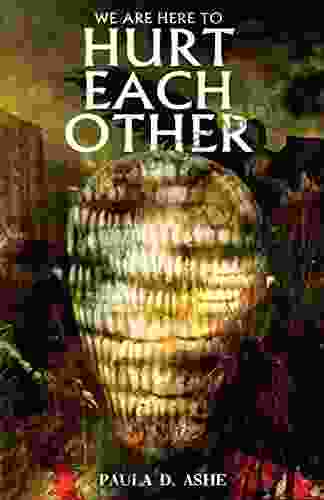
 Ethan Mitchell
Ethan MitchellWe Are Here To Hurt Each Other: A Deep Dive into the...
Yes, I can help you with that. Here is an...

 Xavier Bell
Xavier BellHannah Arendt: A Life in Dark Times
Hannah Arendt was a...
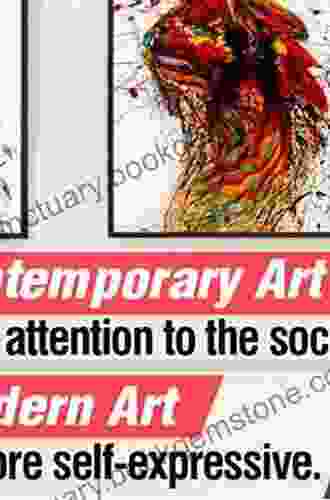
 Donovan Carter
Donovan CarterThe Art of Looking: A Comprehensive Exploration of Visual...
: The Power of...

 Terence Nelson
Terence NelsonUnveiling the Secrets of Moscow's Red Square: A Journey...
In the heart of Moscow,...
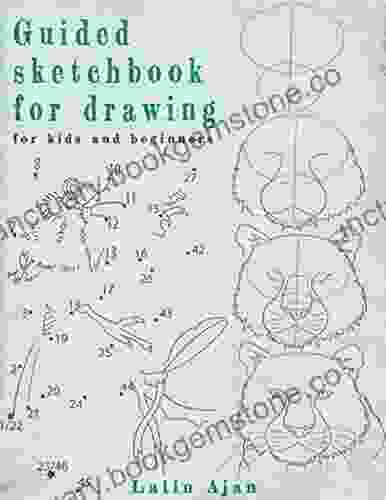
 Cruz Simmons
Cruz SimmonsDrawing Workbook for Kids and Beginners: An Enchanting...
: Unveiling the Magic of Drawing Drawing, an...
4.3 out of 5
| Language | : | English |
| File size | : | 941 KB |
| Text-to-Speech | : | Enabled |
| Screen Reader | : | Supported |
| Enhanced typesetting | : | Enabled |
| Word Wise | : | Enabled |
| Print length | : | 242 pages |





